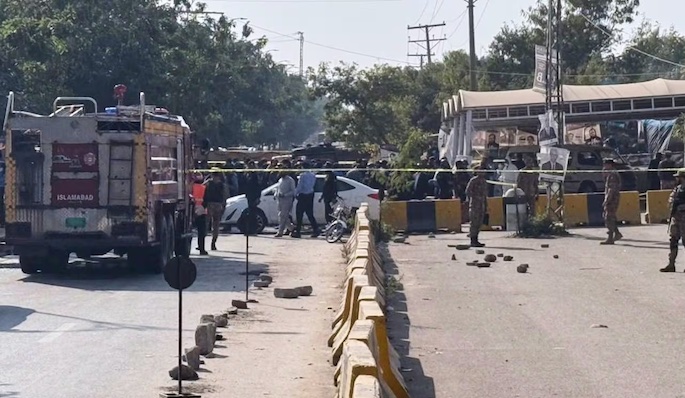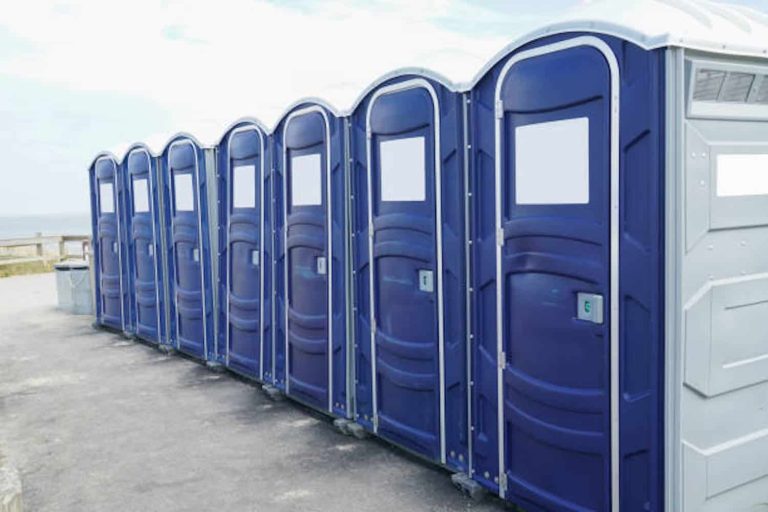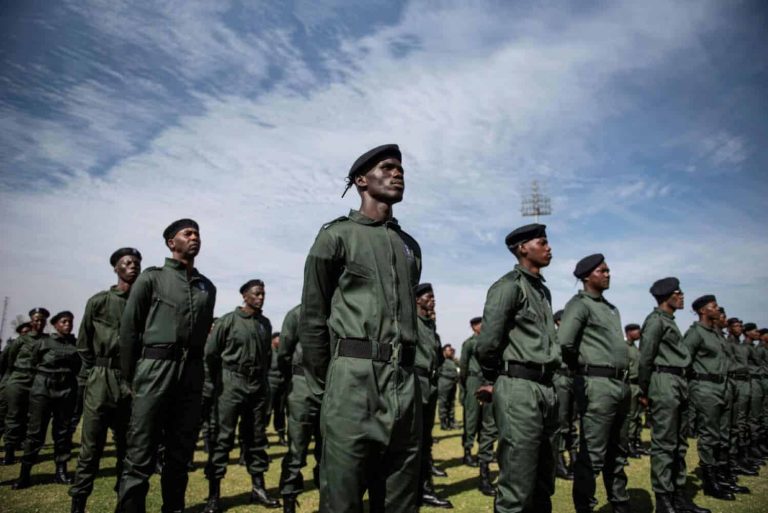
A devastating suicide bombing outside a district courthouse in Pakistan’s capital, Islamabad, has claimed the lives of 12 people and injured at least 27 others, officials confirmed on Tuesday. The attack, which caused widespread panic and chaos, marks one of the rare instances of suicide attacks in the city in recent years.
According to Pakistan’s Interior Minister Mohsin Naqvi, the attacker intended to enter the courthouse but was unable to do so. The bomber detonated an explosives-laden vehicle near a police car after waiting for approximately 15 minutes. Footage from the scene showed a burnt-out vehicle, smoke rising behind a security barrier, and a cordoned-off area as emergency services rushed to assist the victims.
Witnesses described chaotic scenes outside the court. Lawyer Rustam Malik, who was parking his car at the time, “It was complete chaos. Lawyers and people were running inside the complex. I saw two dead bodies lying on the gate and several cars on fire.”
The 27 injured individuals are receiving medical treatment, with authorities working to stabilize their condition and provide emergency care.
Jumaat Ul Ahrar, a splinter group of the Pakistani Taliban (TTP), claimed responsibility for the bombing, according to local media reports. However, two local journalists reported that the TTP’s central leadership has denied any connection to the attack. Suicide bombings in Islamabad have been rare in recent years, with the last major incident occurring three years ago, which killed a police officer and injured several others.
Prime Minister Shehbaz Sharif condemned the attack and alleged that extremist groups “actively backed by India” were involved, calling the assault on unarmed Pakistani citizens “condemnable.” The Indian government denied these allegations, describing them as “baseless and unfounded.” Pakistani President Asif Ali Zardari also issued a statement strongly condemning the blast.
This incident comes amid heightened tensions in the region. In a separate but coinciding event, a car explosion in India’s capital, Delhi, on Monday killed eight people. While Indian authorities have not officially classified it as a terrorist attack, the case has been referred to the country’s anti-terrorism agency. Prime Minister Narendra Modi vowed that all responsible parties would face justice, emphasizing that conspirators behind such “heinous acts will not be spared.”
Following the Islamabad bombing, Pakistani authorities have intensified security around key government buildings and courts. Interior Minister Naqvi stated that identifying the bomber and dismantling any connected extremist networks would be a top priority. Law enforcement agencies are also reviewing security protocols to prevent future attacks in the capital, where suicide bombings have historically been rare compared to other regions of Pakistan.
The attack has sparked widespread concern over public safety and the resurgence of extremist violence in Pakistan. Analysts note that targeting courts a symbol of the justice system, may indicate an attempt by militant groups to undermine state authority and create fear among civilians and legal professionals.
Erizia Rubyjeana



